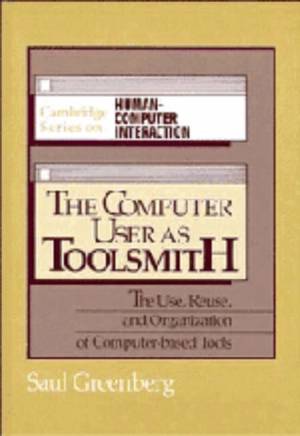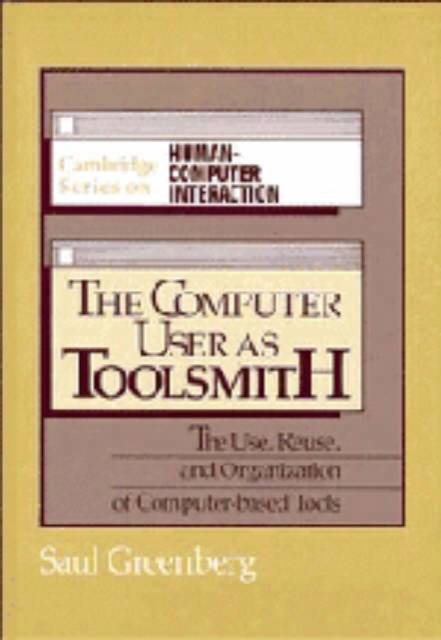
- Afhalen na 1 uur in een winkel met voorraad
- Gratis thuislevering in België vanaf € 30
- Ruim aanbod met 7 miljoen producten
- Afhalen na 1 uur in een winkel met voorraad
- Gratis thuislevering in België vanaf € 30
- Ruim aanbod met 7 miljoen producten
Zoeken
The Computer User as Toolsmith
The Use, Reuse and Organization of Computer-Based Tools
Saul Greenberg
€ 134,45
+ 268 punten
Omschrijving
Computing environments that furnish a large set of tools (such as editors, mail programs, and language processors) are difficult to use, primarily because there is no means of organizing the tools so that they are at hand when needed. Because of the dearth of knowledge of how users behave when issuing commands to general purpose computer systems, existing user support facilities are ad hoc designs that do not support natural work habits. The Computer User As Toolsmith describes several empirical studies from which the author has developed a computer version of a handyman's workbench that would help users with their online activities. For the practitioner and interface designer, the guidelines and principles offered here are directly applicable to the rational design of new systems and the modernization of old ones.
Specificaties
Betrokkenen
- Auteur(s):
- Uitgeverij:
Inhoud
- Aantal bladzijden:
- 204
- Taal:
- Engels
- Reeks:
- Reeksnummer:
- nr. 6
Eigenschappen
- Productcode (EAN):
- 9780521404303
- Verschijningsdatum:
- 29/01/1993
- Uitvoering:
- Hardcover
- Formaat:
- Genaaid
- Afmetingen:
- 184 mm x 263 mm
- Gewicht:
- 662 g

Alleen bij Standaard Boekhandel
+ 268 punten op je klantenkaart van Standaard Boekhandel
Beoordelingen
We publiceren alleen reviews die voldoen aan de voorwaarden voor reviews. Bekijk onze voorwaarden voor reviews.











